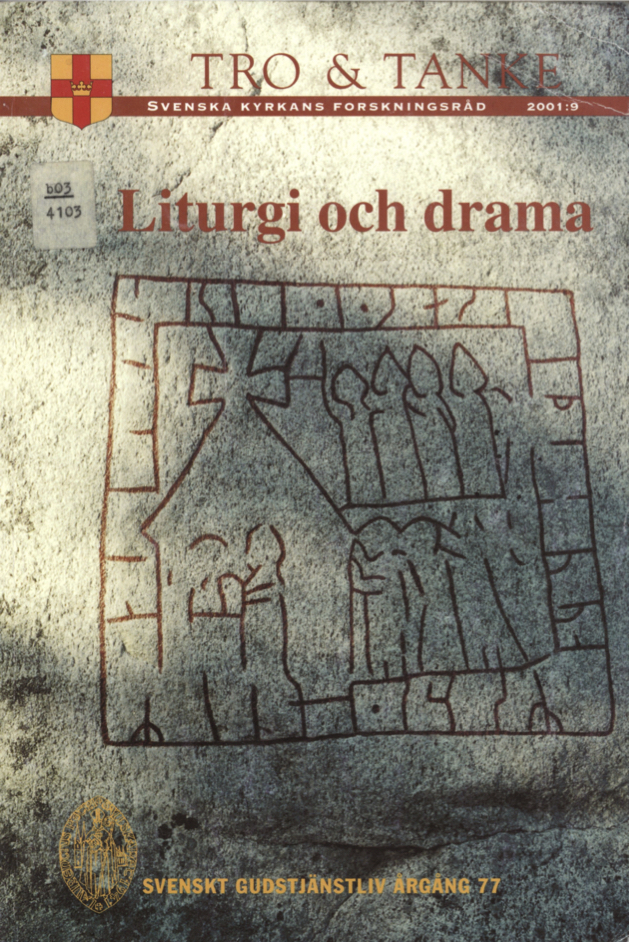Opera og livstolkning
Abstract
In this paper, I argue that operas often seem to highlight fundamental questions regarding the meaning of life. Referring to new research in recent years, one point of departure is that the opera did not come about in a musical dramatic vacuum, but had important predecessors in the so-called liturgical dramas of the Middle Ages reflecting Christian theology and liturgy.
The Danish philosophical writer Sören Kierkegaard in his Either-Or (1843) understood opera— as opposed to spoken drama— to be less dependent on its dramaturgical construction, hut— in contrast— to be understood and defined rather through their lyrical character, the basic atmosphere of the work.
The overall problem of the “meaning” of opera can obviously not be satisfactorily dealt with in a short article like the present one, and is therefore being approached by two main examples—each treated in a particular section: the church yard scene of Mozart’s Don Giovanni (1787 ) and the apple shooting episode of Rossini’s Guillaume Tell (1829).
In Mozart’s Don Giovanni the church yard scene where Giovanni for the first time is confronted with the ghost of the Commendatore is a turningpoint, dramaturgically speaking. Mozart’s using chromatically descending musical figures (the classical lament figure) as well as instruments giving associations to the liturgy for the lines of the Commendatore, makes us understand both his role and that of Don Giovanni in a completely different light than the famous interpretation in Sören Kierkegaard’s Either Or, which does— notably— not refer to the church yard scene at all.
Drawing also on biographical information (from Mozart’s letters) and the music for the so-called divine voice in his Idomeneo (1 780-81), I argue that Mozart and his librettist Da Ponte consciously used the liturgical heritage to represent a divine judgement on selfishness and lack of morality in the overall form of Don Giovanni. In such a way it is possible, and even natural, to understand this opera as representing a traditional Christian ideology.
Gioachino Rossini has a very different place in operatic history. His last opera, Guillaume Tell differs, however, radically from all of Rossini’s earlier operas. This opera is a serious French operatic work based on Friedrich Schiller’s historical drama about Wilhelm Tell, and is thus ultimately both based on historical sources from the late Middle Ages and incorporates a long and complicated literary reception dating hack to the 12th century (and goes back, seemingly, even to Nordic sources; among others the Gesta Danorum of the Danish historian Saxo). Rossini and his librettists knew of course nothing of such a history behind their work, hut used the material— to some extent in accordance with Schiller’s usage—to celebrate the urge for freedom, the courage to fight against oppression, and last hut not least the readiness of Tells son Jemmy to let himself be sacrificed. In this way he gives new courage to his father who is about to give up in fear for his son’s life.
I argue that the literary, dramatic, and historical material is not just used in this way in the libretto, hut Rossini in his presentation has structured the music so as to emphasise the existentially redeeming features of the dramaturgical scheme in a way which makes it clear that the opera does not just tell a story, hut highlights a particular quasi-ritualistic and existential redemption which is clearly related to Christian traditions. This is certainly not to he understood as a conscious Christian proclamation, hut rather to he seen as a use of a musically dramatic, traditional structure which is employed—detached from its liturgico-dramatic roots—to promote an under standing of the ultimate meaning of communal and individual human life.
Downloads
Publicerad
Nummer
Sektion
Licens
© författarna, Laurentius Petri Sällskapet för svenskt gudstjänstliv samt Artos & Norma bokförlag. Det är tillåtet att kopiera och använda material ur Svenskt Gudstjänstliv för forskningsändamål om källan anges. För övriga ändamål kontakta respektive artikelförfattare samt förlaget. Särskilda restriktioner kan gälla för bildmaterial.


